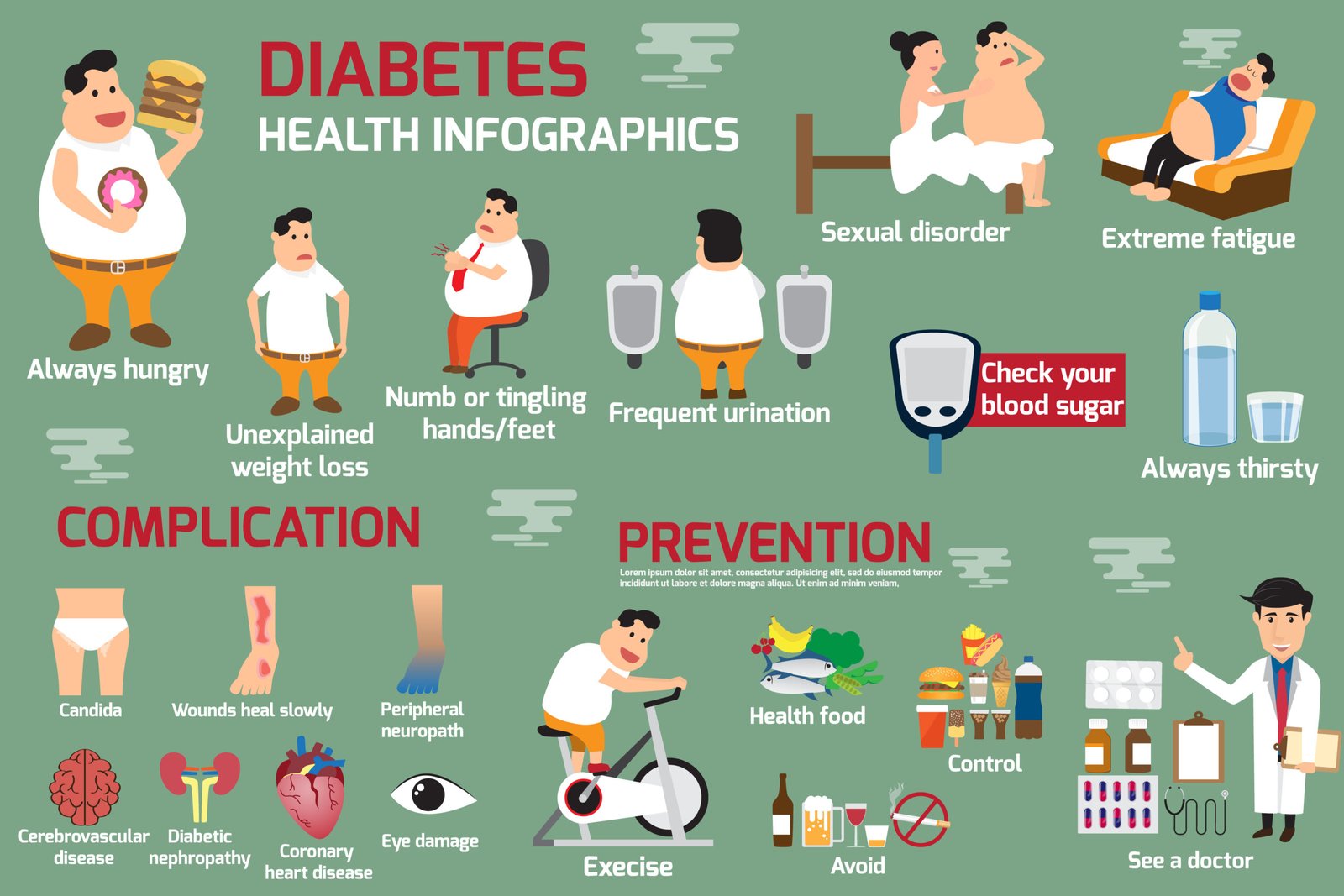Understanding Diabetes: Early Symptoms You Shouldn’t Ignore
Diabetes is often referred to as a “silent disease” because it can develop without noticeable symptoms. However, recognizing early warning signs is essential for managing the disease and preventing serious health complications. Diabetes comes in different forms, such as type 1, type 2, and prediabetes. In this article, we’ll explore the common symptoms and effective prevention strategies to help you stay on top of your health.
Common Symptoms of Diabetes to Watch For
Diabetes symptoms can be subtle, which is why it’s important to be vigilant and recognize potential early warning signs. If you experience any of the following, it might be time to consult with a healthcare professional:
- Excessive Thirst and Urination: When blood sugar levels are high, the kidneys work overtime to filter out excess glucose, causing frequent urination and increased thirst.
- Constant Fatigue: Diabetes can disrupt the body’s ability to convert food into energy, leading to tiredness and lack of energy.
- Blurry Vision: Elevated glucose levels can affect the lenses in your eyes, leading to temporary vision issues that may improve with blood sugar control.
- Unintended Weight Loss: If your body is not using glucose properly, it may start breaking down muscle and fat, leading to unintentional weight loss.
- Slow-Healing Wounds: High blood sugar can impair blood flow and slow the body’s natural healing process, making it more difficult for wounds to heal properly.
If you notice any of these symptoms, don’t hesitate to seek medical advice.

The Risks of Untreated Diabetes
Left untreated, diabetes can lead to severe complications such as:
- Cardiovascular Issues: Diabetes can damage blood vessels, increasing the risk of heart disease, stroke, and other cardiovascular conditions.
- Kidney Damage: Chronic high blood sugar can lead to kidney disease or even kidney failure.
- Nerve Damage: Diabetic neuropathy affects the nervous system, leading to numbness, tingling, and pain, especially in the hands and feet.
- Eye Problems: Diabetes can lead to diabetic retinopathy, which damages the retina and can lead to blindness if not managed properly.
Recognizing and addressing these risks early can prevent further damage to your health.
What Is Prediabetes?
Prediabetes is a stage where blood sugar levels are higher than normal but not yet high enough to be classified as diabetes. If left unaddressed, prediabetes can progress to type 2 diabetes. Fortunately, prediabetes is reversible through lifestyle changes such as improved diet and increased physical activity.
How to Prevent or Manage Diabetes: Effective Tips
Whether you’ve been diagnosed with diabetes or are at risk, taking proactive steps can significantly reduce the impact of the disease. Here are some strategies for managing or preventing diabetes:
- Lose 5-10% of Your Body Weight: Even a modest weight loss can improve insulin sensitivity and reduce the risk of developing type 2 diabetes.
- Follow a Healthy, Balanced Diet: Focus on consuming whole grains, lean proteins, vegetables, fruits, and healthy fats. Avoid processed foods and sugary drinks that can spike blood sugar levels.
- Engage in Regular Physical Activity: Exercise helps regulate blood sugar levels, boosts insulin sensitivity, and supports overall health. Aim for at least 30 minutes of moderate exercise, like walking, most days of the week.
- Monitor Blood Sugar Regularly: Regular check-ups and blood sugar monitoring can help you track any changes and take necessary actions to prevent diabetes from progressing.
Conclusion: Taking Control of Your Health
Diabetes is a manageable condition if detected early and properly controlled. By recognizing the early symptoms and understanding the risks, you can take proactive measures to either prevent or manage diabete effectively. Whether you’re dealing with prediabetes or have already been diagnosed, making positive lifestyle changes is key to staying healthy and reducing the likelihood of complications. Start taking control of your health today to enjoy a better tomorrow.
Malaysia emergency phone: 999
relevant agency : Malaysian Emergency Response Services 999 (MERS 999)











